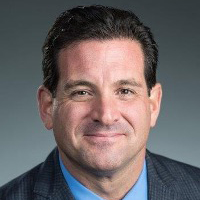The traditional CPA firm was a maze of office cubicles, cluttered desks laden with paperwork, incessant printers, and staff consumed by tedious manual tasks. Late nights and excess coffee were norms, especially during tax season. Contrast this with today’s modern CPA firm, where a tech-savvy accountant can work from a coffee shop halfway across the world. Armed with only a laptop and wifi connection, routine tasks are automated, meetings are conducted over Zoom, and the focus is on providing actionable advice to clients.
Better yet, the CPA firm is more profitable, less stressful, and more flexible overall! So, how can you turn your firm around before it goes the way of the Dark Ages?
Go 100% Virtual
Brick-and-mortar firms are falling by the wayside. There simply isn’t a need to pay expensive rent and utilities when your workforce can simply work from home. You’re no longer bound by geographical boundaries – in fact, by releasing yourself from a single location, you’re opening yourself up to a global pool of clients and talent. You can have a client in Florida working with a CPA in Costa Rica. You can have Zoom meetings with clients and employees alike and use sophisticated task software to manage from afar.
Today’s workforce, particularly the younger generation, greatly values flexibility and autonomy in their work arrangements. The opportunity to work remotely, often dubbed the ‘digital nomad’ lifestyle, is increasingly sought after as more and more people combine work and travel. By offering this opportunity, modern firms not only position themselves as attractive and understanding employers but also demonstrate their commitment to promoting a healthy work-life balance.
Focus on Advisory Services
If you’ve read our other articles, you’re well aware of the vast array of cutting-edge tools available to CPAs these days. These instruments considerably free up your time, allowing you to step beyond the boundaries of traditional accounting by automating routine yet tedious procedures. You can then channel your newfound time and energy into a wide range of services that a CPA is uniquely qualified and trusted to advise on.
Tech Stack Implementation and Training
Modern CPA firms are excellent at analyzing a businesses needs to help them choose the best accounting software, AI-powered analytics, cloud-based collaboration platforms, CRM systems, and blockchain technology solutions to help them streamline their operations and increase productivity. But the advice doesn’t stop with just choosing the right tech stack – a tech-savvy CPA should teach clients effectively implement utilize their tech stack.
Tax Planning
Today’s CPA should go way beyond maximizing a company’s deductions for the year. Tax planning should look everywhere all at once – the years before, the present, and probably most importantly, the future, to improve the client’s long-term financial health by reducing taxes at every point in time with a comprehensive tax plan.
Improving Workflows
Through their advisory role, CPA firms also assist in enhancings clients’ operational workflows. By identifying bottlenecks and inefficiencies, they recommend tailored solutions that can enhance efficiency, reduce waste, and promote a smoother operational flow. For example, a company that constantly experiences problems with inventory management could utilize a CPAs extensive knowledge of software to find a solution that automates the inventory problem while simultaneously syncing with their financial software.
KPIs and Metrics
Nobody knows numbers like CPAs. Therefore, they’re uniquely situated to advise on the most up-to-date KPIs that a firm should be keeping track of in this data-driven age. By carefully measuring profit ratios, margins, cash flow, returns, and capital, a company is in a better place to make an informed decision on how to improve their procedures.
Budgeting
Lastly, CPA firms provide crucial support in budgeting. They assist clients in formulating robust budgets that align with their financial goals and business objectives while keeping in mind the data gleaned from the KPIs. This service aids in better financial management and promotes long-term sustainability.
Updated Pricing Methods
Rather than billing by the hour, which promotes busywork, burning the midnight oil, and dragging out jobs as long as possible, modern accounting firms has shifted to a more client-centric approach.
Progressive accounting firms are now favoring value-based pricing, a method that focuses on the tangible results delivered to the client rather than the number of hours put into the work. This model promotes efficiency, motivates innovation, and discourages unproductive behavior. It underscores the principle that the true worth of a service is the value it provides to the client, not the time taken to deliver it.
Value-based pricing thus allows firms to align their charges more closely with the outcomes that matter to their clients. By doing so, they not only increase client satisfaction but also develop longer-lasting, trust-based relationships. In the long run, this switch not only brings better value to the clients but also creates a healthier work environment for the accounting team, leading to a win-win situation for all parties involved.
Promoting Work/Life Balance and Mental Health
The demanding nature of the accounting profession makes it a breeding ground for stress and potential burnout. To combat this, modern CPA firms prioritize the work-life balance and mental health of their teams. These firms understand that a well-rested, balanced, and mentally healthy CPA is not only more productive but also much less prone to errors, which is particularly important during peak times such as tax season.
Modern accounting firms adopt proactive measures to maintain a healthy work environment. Recognizing the early signs of burnout, providing resources to manage stress, and fostering a culture of open dialogue and about mental health are key strategies being employed.
In Conclusion
As the business landscape evolves, modern CPA firms are breaking away from traditional practices, instead adopting innovative approaches to better meet the needs of their clients and employees. By leveraging the power of technology, they are not only streamlining their services but also embracing an entirely new work model that values flexibility, diversity, and work-life balance.
These firms are expanding their service portfolios beyond compliance accounting to include various advisory services, further deepening client relationships and driving growth. The shift to value-based pricing underscores their commitment to providing real value to their clients, fostering trust, and ensuring long-term client satisfaction.
Moreover, modern CPA firms are acutely aware of the high-stress nature of the accounting profession. They strive to promote a healthier work environment by prioritizing work-life balance and mental health, ensuring their teams remain productive, fulfilled, and capable of delivering high-quality service.








